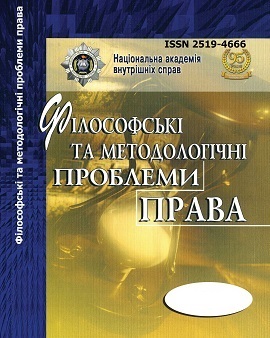Freedom of Speech in the Philosophical and Legal Context
Abstract
In the article it is analyzing the concept «freedom of information» and the right on information in the philosophical and legal context on the base of the scientific research, normative and other documents.
It is pointed that before this time in the society it is not formed clear vision and understanding of the right on information as a natural right, it is not defined its characteristics on the legislative level. It creates some practical and theoretical difficulties, that largely disturbs further development of the theory of the human rights in Ukrainian society and the consciousness by its members the right on information as an immanent and inherent.
It is concluded that the decision of problems connected with freedom of information it is needed to find first of all, on the philosophical level. These decisions in particular depend on individual worldviews, in general – depend on the attitude to the problem which dominates in the society.
Downloads
Abstract views: 166 PDF Downloads: 57
Copyright (c) 2018 Philosophical and Methodological Problems of Law

This work is licensed under a Creative Commons Attribution-NonCommercial-NoDerivatives 4.0 International License.
- Authors reserve the right to authorship of their own work and transfer to the magazine the right of the first publication of this work under the terms of the Creative Commons Attribution License, which allows other persons to freely distribute published work with mandatory reference to authors of the original work and the first publication of an article in this magazine.
- Authors have the right to enter into separate additional agreements on non-exclusive dissemination of the work in the form in which it was published in the journal (for example, to post an article in the institution's repository or to publish as part of a monograph), provided that the link to the first publication of the work in this journal is maintained.
- The journal's policy allows and encourages the posting of articles by authors on the Internet (for example, in electronic storehouses of institutions or on personal websites), both before the submission of this manuscript to the editorial office and during its editorial processing, as this contributes to the creation of a productive scientific discussion and positively affects the efficiency and dynamics of citing the published work.




